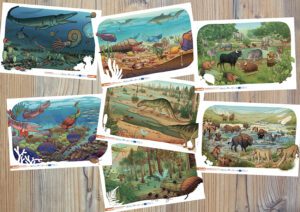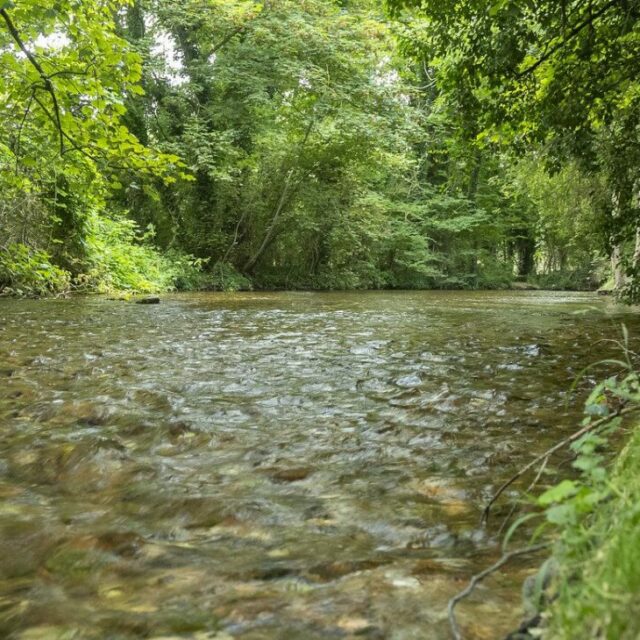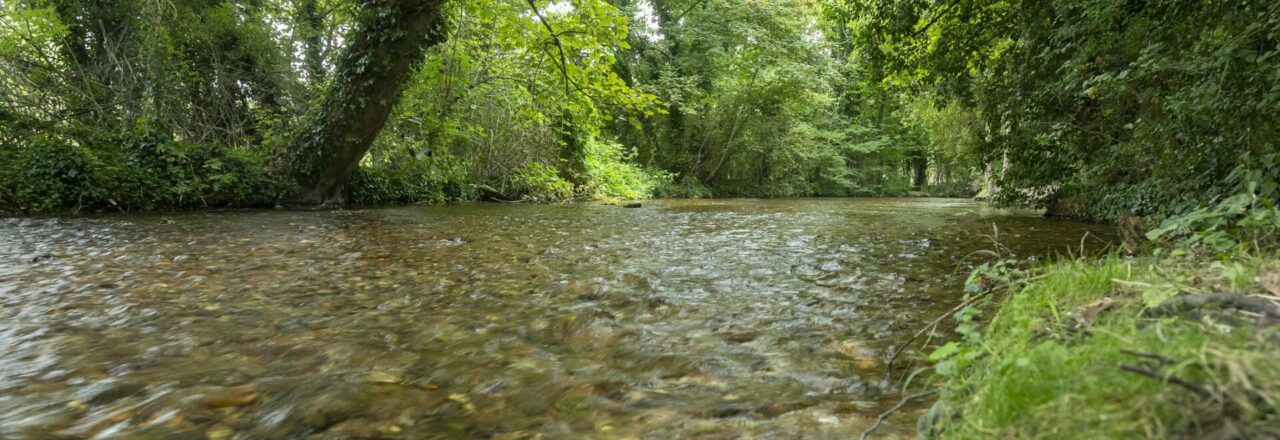Paleoenvironments
By studying rocks and the fossils they contain, geologists can reconstruct life in the environments where these rocks were formed. From these discoveries, paleoenvironmental reconstructions allow us to imagine what the Geopark looked like millions of years ago! These paleoenvironments were created as part of the GéodéO series.
GéodéO is part of the Geodiversity Action Plan for the Hauts-de-France region, jointly led by the Conservatoire d’Espaces Naturels des Hauts-de-France and the DREAL Hauts-de-France. This ever-evolving collection is aimed at both geology enthusiasts and anyone interested in understanding how our landscapes were formed and learning more about our history.
Travel back in time through these reconstructions !

During the Middle Devonian, 380 million years ago, our region lay under the Tropic of Capricorn, bathed by a sea teeming with life and flourishing reefs.
At the end of the Carboniferous period, 310 million years ago, a lush forest inhabited by giant insects and bordered by a mountain range comparable to the Himalayas covered the land!
At the beginning of the Triassic period, 250 million years ago, the Hercynian mountain range, formed during the Carboniferous, was gradually eroded by rivers winding through Voltzia forests.
At the end of the Cretaceous period, 92 million years ago, the sea submerged the region and microscopic algae accumulated over centuries to form hundreds of meters of chalk.
During the Quaternary period, 2.5 million years ago, the climate fluctuated between cold (glacial) and warmer (interglacial) periods. Throughout these transitions, landscapes alternated between steppes and forests, and wildlife ranged from woolly mammoths to hippos !
Download the GéodéO tools here : [GéodéO Download | Framaforms.org]
Want to learn more about GéodéO and the CEN? Visit : GéodéO | Conservatoire d’espaces naturels des Hauts-de-France
©L’atelier monde/CEN HDF/DREAL HDF



